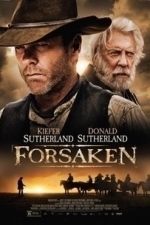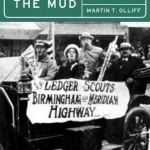
Getting Out of the Mud: The Alabama Good Roads Movement and Highway Administration, 1898-1928
Martin T. Olliff and David O. Whitten
Book
Martin T. Olliff recounts the history of the Good Roads Movement that arose in progressive-era...
Darren (1599 KP) rated Forsaken (2016) in Movies
Sep 16, 2019
Performances – Kiefer Sutherland in the leading role is fine, though his mumbling doesn’t help us care enough his character, opposite his father Donald who isn’t the most entertaining either. Michael Wincott was the most interesting character because he seems to get some development and want to see more from him. Brian Cox feels completely wasted in his role that gives him nothing.
Story – The story follows a man returning home with a reputation while he needs to learn how to make a stand to protect his town which has become a problem overrun by a gang of outlaws. This does follow the generic idea of a returning man helping clean up his town without offer anything new, it keeps us seeing how the action are building up to the problems that will be facing before the final showdown. The pacing does become slow which does make things unfold at a snail’s pace which just doesn’t keep our attention for long enough.
Action/Western – The action does feel flat, we just don’t get enough of it to make us believe it is action heavy movie, though the mood makes us feel like the western we are entering.
Settings – The film does make us feel like we are the small town which has a community feeling about it.
Scene of the Movie – Dave doesn’t like his men not following orders.
That Moment That Annoyed Me – The mumbling from Kiefer.
Final Thoughts – This is a slow paced action western movie that just never gets going and ends up feeling the pace taking age to get through.
Overall: Slow and bland.

Real Estate MLS by Zolo - Listings of Homes & Condos for Sale in Canada by Realtors
Lifestyle and Reference
App
Find a home you'll love with the free Zolo real estate app powered by local MLS listings. Search...
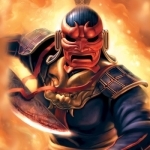
Jade Empire™: Special Edition
Games
App
Jade Empire: Special Edition is an award-winning action RPG from the makers of Dragon Age and Mass...
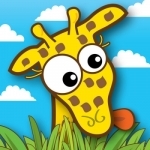
Giraffe's PreSchool Playground
Games and Education
App
SIX GAMES IN ONE! - Incredible value! ***SALE for a LIMITED TIME*** ***SALE for a LIMITED TIME*** ...
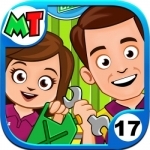
My Town : Car (wash, fix & drive cars)
Games and Education
App
Buckle up and enter the world of My Town : Cars! If your child is showing signs of being a car...

EverRun - Legend of the Horse Guardians
Entertainment and Games
App
Run endlessly across beautiful lands with the eight horses of Everbloom! Budge Studios™...
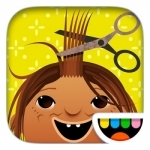
Toca Hair Salon
Education and Entertainment
App
Let your kids run their own Toca Hair Salon! Cut, color, comb and blow-dry lifelike hair on six...

